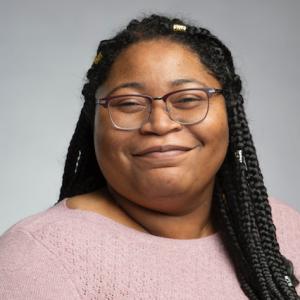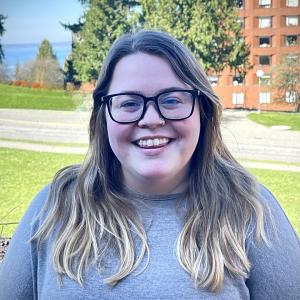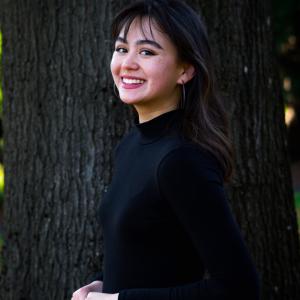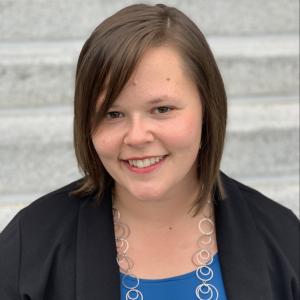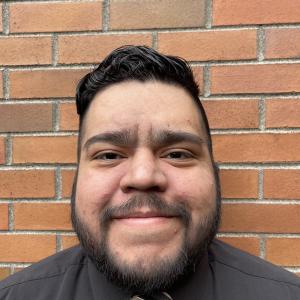Residence Life is one of four functional units within University Residences. Other units consist of Business and Information Systems, Facilities, and Occupancy, Communication and Administrative Services.
Learn more about each of our residential areas through Explore the Buildings.
Supervising Resident Director
As a Supervising Resident Director, you will have the opportunity to create a unique residential experience for students and staff members in a residential community of 550-700 students. In this role, you will:
- Have a higher level of decision-making authority
- Supervise 1 full-time professional staff member (Assistant Resident Director)
- Chair committees within the unit
- Serve in the senior staff on call rotation
- Represent the unit on departmental committees and campus initiatives
- Serve as a leader and educator who promotes equity and inclusion in the community
- Help students develop consciousness regarding principles of equality, respect, and individual and collective responsibility.
- Opportunity to work with affinity housing (i.e. Black Affinity Housing, Pride Housing, Honors and Substance-Free Housing)
Resident Director
As a Resident Director, you will have the opportunity to create a unique residential experience for students and staff members in a residential community of 300-600 students. In this role, you will:
- Serve as a leader and educator who promotes equity and inclusion in the community
- Help students develop consciousness regarding principles of equality, respect, and individual and collective responsibility
- Build and refine your skills in providing academic support, crisis response and management, student conduct, and student development
- Mentor student staff and student leaders in building their capacity as leaders that will directly support them in their future careers.
- Have the opportunity to engage in professional development such as joining departmental committees, working on innovative initiatives, and attending conferences that will help you achieve your professional career goals.
Assistant Resident Director
As an Assistant Resident Director, you will have the opportunity to grow your skillset in Residence Life and gain valuable experience through assisting in providing educational and administrative leadership in developing diverse and inclusive communities enhancing student learning and development in a residential community of 550-700 students. You will:
- Work closely with the Supervising Resident Director to promote equity and inclusion within the community
- Help students develop consciousness regarding principles of equality, respect, and individual and collective responsibility.
- Have the opportunity to enhance student learning through serving as a conduct officer and advising our hall or community councils in their leadership journey.
- Opportunity to work with affinity housing (i.e. Black Affinity Housing, Pride Housing, Honors and Substance-Free Housing)
Questions about these positions?
Contact reslife@wwu.edu or 360-650-2960.
Reasons to Work With Us
Curricular Approach
We’ve been using a curricular approach for over 12 years and recently launched our new program, University Residences Initiative for Student Engagement (URISE).
Location of Bellingham
Located off the shores on Bellingham Bay, we are about 50 miles to Vancouver, BC and about 90 miles to Seattle.
Professional Development
As a member of our team, you will grow professionally through your work on committees inside and outside of our department by attending a conference through the support of office funding, in addition to engagement and lead training opportunities.
We have fun
We often say, “we take our work seriously, but we don’t take ourselves too seriously.”
Commitment to Equity and Inclusion
We use critical race theory as one of our frameworks for our curriculum. We constantly work to ensure that equity and inclusion is in the forefront of our decisions and practices.
Vibrant Campus Partnerships
Residence Life strives to maintain strong partnerships with offices on campus to foster stronger program development and policy decisions.
High Student Contact
With just over, 4,000 students in housing, we have a focus on high student contact while also gaining skills as a member of a large housing operation.
More About Us
Meet the Staff
Central Staff
David Ruble
He/Him

Assistant Director for Residence Life/Care and Conduct
rubled@wwu.edu
Office: EH 113
North Campus Professional Live-In Staff
Ridgeway Professional Live-In Staff
South Campus Professional Live-In Staff
University Residences Initiative for Student Engagement (URISE)
Educational Priority
Students will utilize strengths and learn from others within the campus community to further their sense of belonging and personal development.
Learning Goals
Building inclusive communities
Residence Life will promote inclusive community-building by intentionally engaging with staff and students
Career preparedness
Residence Life will have a deliberate focus on students’ career preparedness through a variety of co-curricular activities and conversations.
Personal Wellness
Residence Life will provide students with opportunities to aid in personal wellness behaviors focused on three main areas: healthy relationships, stress management, and conflict resolution.
Theoretical Frameworks
Community Based Learning
Community-based learning is a teaching and learning strategy integrating meaningful community engagement with instruction and reflection. This strategy enriches the learning experience with a greater emphasis on reciprocal learning and reflection.
Strengths Based Approach (SBA)
Grounded in complex positive psychology research, the strength-based approach (SBA) boils down to a simple rule: focus on what students do well. It feels natural to do the opposite because working on areas of weakness may seem like the best way to help students grow. Research shows people respond infinitely better when approached with positivity, both in terms of their continued engagement, motivation and ultimately their behavior change. This is especially the case with students coming from backgrounds seen as deficit driven.
This approach is not used to ignore weaknesses or necessary areas of improvement but to start with a positive lens when viewing oneself or others. In all conversations and interactions with staff and students, we strive to model an approach focusing on individual self-determination and strength. The SBA is student-led and student-centered on outcomes to allow students to see themselves at their best. This approach identifies any barriers that may hold back a student's growth. Barriers can occur when dealing with social, personal and/or cultural issues that are not equitable.
Community Cultural Wealth
Residence Life utilizes Dr. Tara Yosso’s conceptualization of Community Cultural Wealth as a critical race theory (CRT) challenge to traditional interpretations of cultural capital. CRT shifts the research lens away from a deficit view of Communities of Color as places full of cultural poverty disadvantages. Instead, we focus on and learn from the array of cultural knowledge, skills, abilities and contacts possessed by socially marginalized groups that often go unrecognized and unacknowledged. Various forms of capital nurtured through cultural wealth include aspirational, navigational, social, linguistic, familial and resistant capital.



